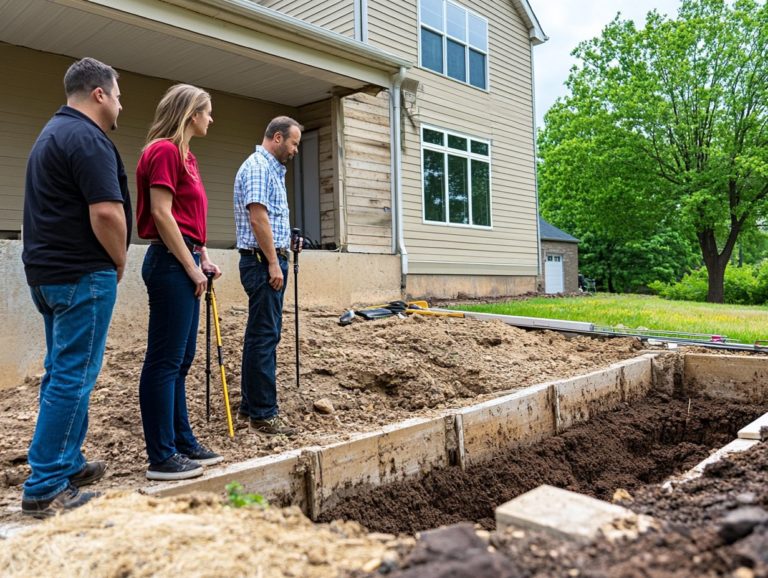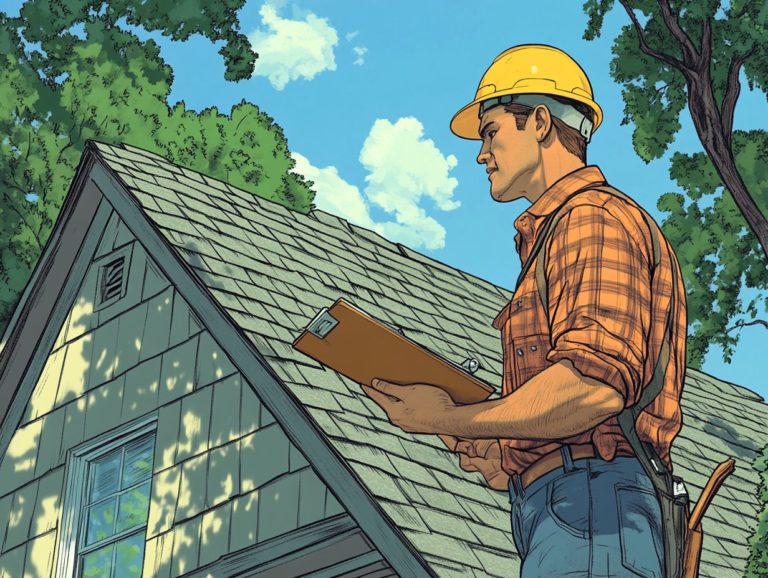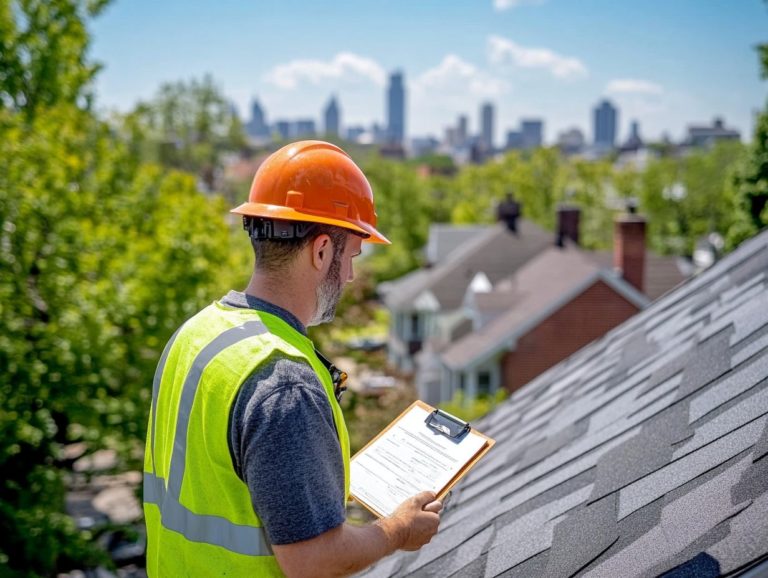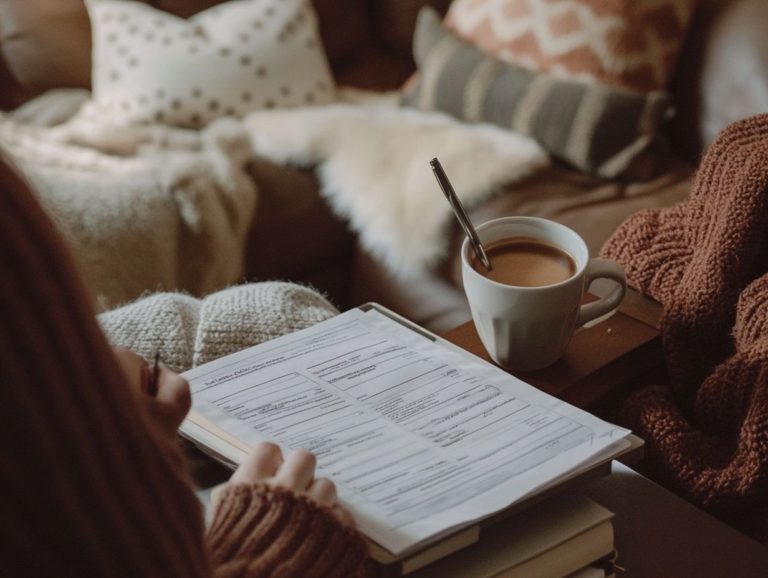How to Follow Up with Your Home Inspector
When purchasing a home, conducting a thorough inspection is essential to uncover any potential issues that could impact your investment.
The process doesn t conclude with the inspector handing over the report. Following up with your home inspector is crucial for clarifying findings, addressing concerns, and ensuring you have a comprehensive understanding of the property s condition.
In this exploration, you ll discover why follow-up is vital, what questions to pose during and after the inspection, how to effectively tackle any issues, and what your next steps should be for making informed decisions moving forward.
Contents
- Key Takeaways:
- Importance of Following Up with Your Home Inspector
- Questions to Ask Your Home Inspector
- Addressing Issues Found During Inspection
- Understanding the Inspection Report
- Next Steps After the Inspection
- Frequently Asked Questions
- What should I do if I have questions after receiving my home inspection report?
- How long should I wait before following up with my home inspector?
- Can I request a re-inspection from my home inspector?
- What should I do if I find new issues with my home after the inspection?
- Is it appropriate to ask for repairs to be done by the home inspector?
- Can I negotiate the price of the home based on the home inspection report?
Key Takeaways:
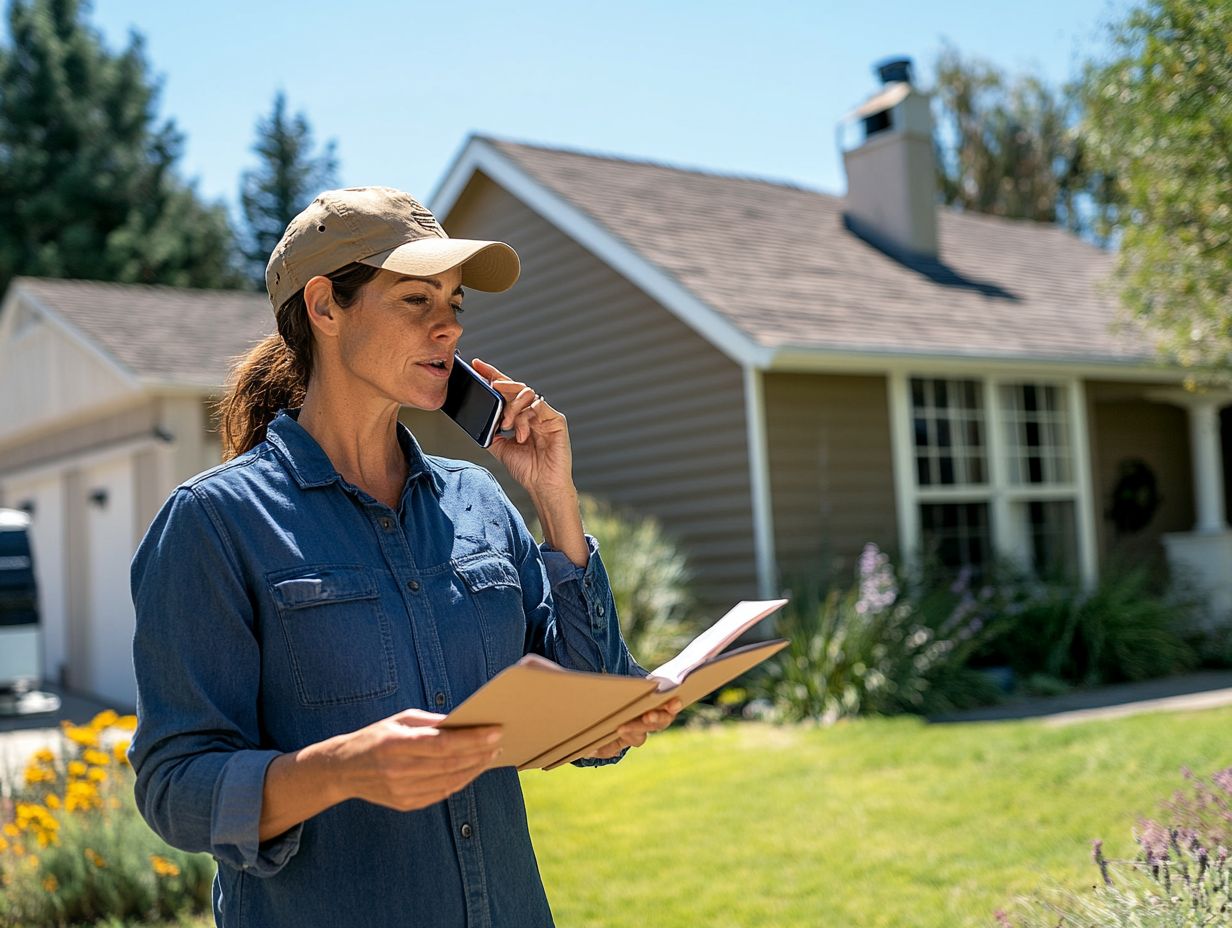
Follow up with your home inspector to avoid future surprises.
Prepare key questions for a better understanding of the inspection report.
Prioritize and address major issues found during the inspection, and consider negotiating repairs or a price reduction with the seller before making a decision on the property.
Importance of Following Up with Your Home Inspector
Following up with your home inspector is essential for ensuring that you fully understand and effectively address the findings from the home inspection. This process involves a thorough visual examination of various home systems, including heating, ventilation, and air conditioning (HVAC), plumbing, and electrical systems, along with checks for structural damage, pest infestations, and any urgent repairs that might pose safety concerns. To ensure you get the most out of this process, refer to our guide on how to make the most of your home inspection.
Engaging in a follow-up with your inspector helps categorize repairs based on urgency and importance, allowing you to create a prioritized repair list. This list will guide you through negotiations with the seller and contribute to a smoother, more confident buying experience.
Why Follow-Up is Necessary
Following up after your home inspection is your key to success! It ensures that all identified issues are properly addressed and that you have a comprehensive understanding of the necessary repairs. To help with this process, consider reviewing key questions to ask your home inspector. This action clarifies your repairs list, helping you avoid overlooked concerns and aids in prioritizing urgent repairs that could impact the safety and livability of your home.
Enhancing communication with your inspector provides valuable insights that can be pivotal during negotiations with the seller. Ask about the severity of each issue to understand its impact and the recommended solutions, empowering you to make informed decisions.
Ultimately, a thorough follow-up sets the stage for a smoother repair process and more favorable negotiation outcomes.
Questions to Ask Your Home Inspector
When interacting with your home inspector, it’s crucial to ask the right questions. This will help clarify the findings in the inspection report and ensure a thorough understanding of your home’s condition.
What to Ask During the Inspection
During your home inspection, it’s essential to inquire about major appliances, HVAC systems, plumbing issues, and the electrical system. Engage the inspector in a conversation to unveil valuable insights into the current state of the home’s infrastructure and highlight any potential hazards.
Ask about the age and maintenance history of the HVAC unit to assess whether it might need replacing soon. Ask if there are any observed leaks or signs of water damage in the plumbing, as these issues could lead to significant repair costs later on.
Understanding the electrical system’s condition is equally important. Don t hesitate to ask about any safety checks performed and whether outdated components may require upgrading. Gathering this information not only helps guide immediate repairs but also assists in planning for long-term home maintenance.
Start your conversation with your home inspector today!
Additional Questions for Follow Up
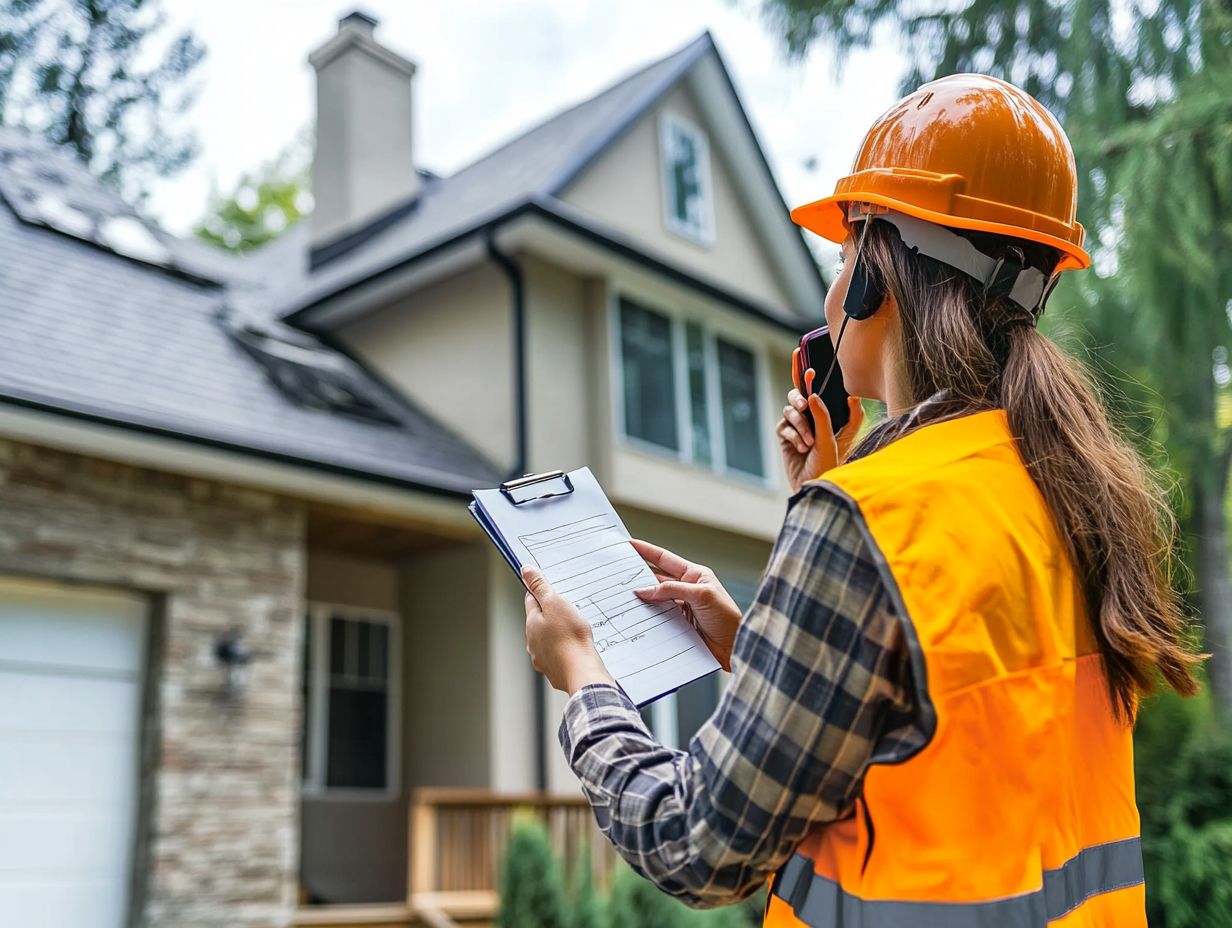
After the inspection, following up with additional questions can unlock deeper insights into the findings. This helps you craft a comprehensive repairs list.
These inquiries can target specific issues. For example, you can seek clarification on vague descriptions of damage or ask how market conditions could impact repair costs.
Understanding current supply and demand dynamics can shape your negotiation strategies. Evaluating the cost of repairs against market value is essential; market value is the price your home could sell for based on current conditions.
It s vital to keep thorough documentation throughout this process. Comprehensive records of conversations and agreements serve as invaluable references and safeguards during negotiations. This ensures that all parties are aligned and fully informed about their obligations.
Addressing Issues Found During Inspection
You must address the issues uncovered during a home inspection to ensure your home stays safe!
When urgent repairs are necessary, take swift action. This not only mitigates potential hazards but also preserves the integrity of your home.
How to Handle Major Issues
When you encounter significant issues during a home inspection, it’s essential to adopt a strategic approach, especially if urgent repairs are needed to meet seller obligations.
Start by assessing the severity of the findings. Distinguish between problems that require immediate attention and those that can wait. At this stage, effective communication with the seller becomes very important.
Presenting the inspection report clearly can pave the way for constructive dialogue. This conversation may uncover the seller’s willingness to negotiate or even cover some repair costs, which could work to your advantage.
By understanding their position, you gain leverage. This allows you to propose reasonable requests that serve the interests of both parties and help achieve a fair resolution.
Dealing with Minor Issues
Minor issues from your home inspection might not feel urgent, but they need your attention for effective home maintenance.
These seemingly small problems like wear and tear on fixtures or slight water stains can accumulate over time. Ignoring them can lead to more significant complications. Prioritize these concerns, not just for appearance but also to preserve the overall integrity of your living space.
Consider documenting each minor issue in a dedicated repairs list. Note important details like the date you discovered it and any relevant observations. This systematic approach creates a clear timeline for addressing repairs and helps you budget for future maintenance. This ensures your home remains in optimal condition for years to come.
Understanding the Inspection Report
Unlock the secrets of your inspection report! Grasping it is crucial for navigating the landscape of home repairs and ensuring you’re ready for negotiations with buyers.
Interpreting the Findings
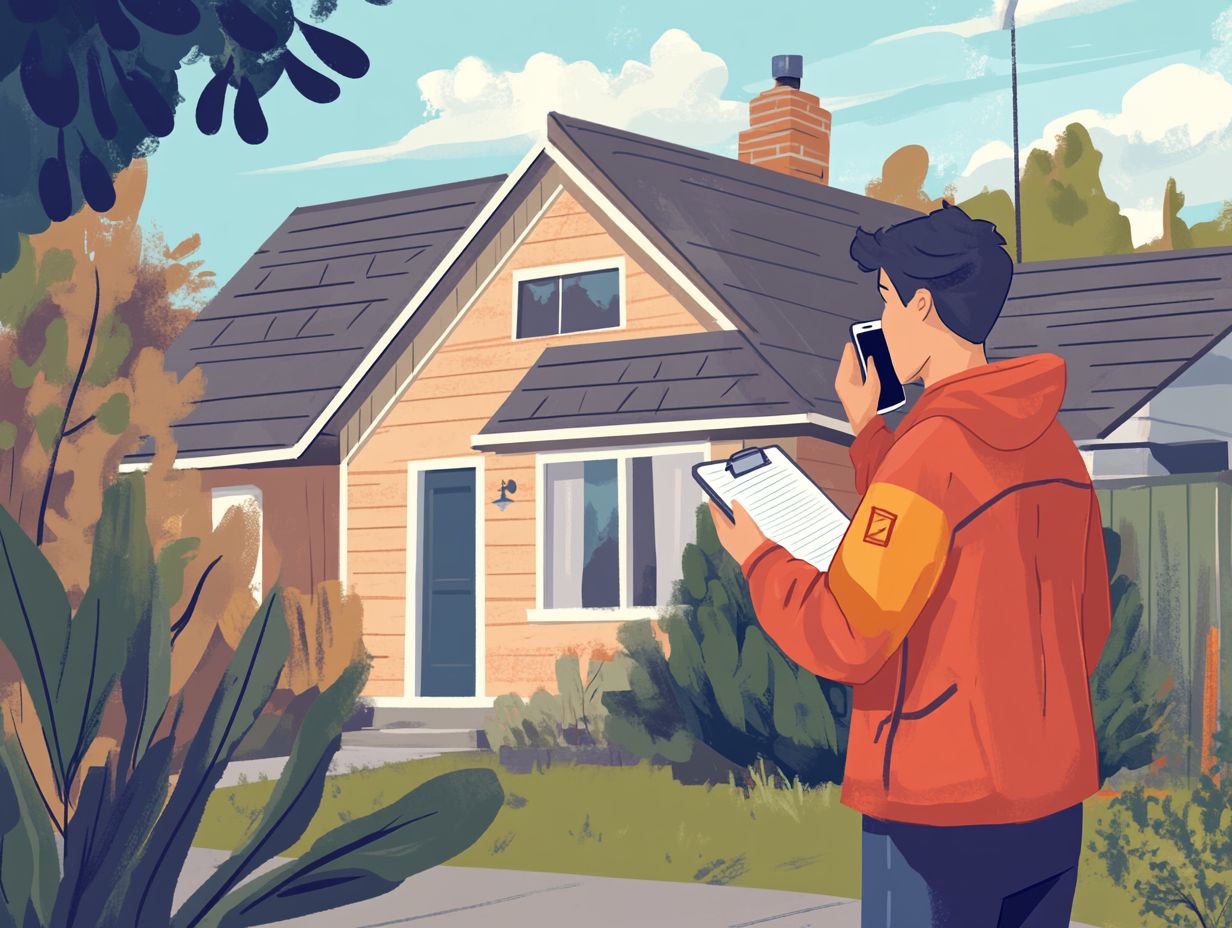
Interpreting the findings in the inspection report requires a keen understanding of various home systems. Identify any safety issues that may need immediate attention. This analysis is vital for you as a prospective homeowner. It not only highlights existing problems like electrical hazards or plumbing deficiencies but also indicates potential cost implications for future repairs.
By evaluating these findings, you can prioritize which repairs are essential for ensuring a safe living environment. During negotiations with the seller, presenting the evidence logically and respectfully is crucial. Clearly articulate what needs to be addressed.
Creating a comprehensive list of necessary repairs can significantly bolster your case for seeking concessions or price adjustments. This paves the way for a smoother transaction and enhanced safety in your new home.
Next Steps After the Inspection
Once you ve completed the home inspection, determining your next steps becomes essential for successfully negotiating repairs and advancing toward closing on your purchase.
Negotiating Repairs or Price Reduction
Negotiating repairs or a price reduction needs a clear strategy. Use the findings from the home inspection to strengthen your position with buyers.
Make a detailed list of repairs to highlight urgent issues that need immediate attention. Frame these concerns as critical to the property s value and future livability.
Engage in open dialogue with the seller about current market conditions. This helps you convey why these repairs are essential for your immediate satisfaction and for maintaining the home s long-term marketability.
This dual approach highlights the importance of negotiations and creates a more collaborative atmosphere. It paves the way for healthier discussions around price and repairs.
Making a Decision on the Property
Making a well-informed decision about the property after the home inspection is crucial. Consider the repairs list and the potential implications for appraisal.
Evaluate not just the immediate costs related to the repairs but also how these improvements will influence the home’s overall value in the long run. Weigh the financial implications can you afford to tackle the necessary updates promptly, or would it be more prudent to request concessions from the seller?
Assess the overall condition of the home, including the age of critical components like the roof, plumbing, and electrical systems. This will give you valuable insight into future maintenance needs.
By understanding these factors, you’ll be better equipped to make a decision that aligns with your short-term financial stability and long-term investment goals.
Frequently Asked Questions
Here are some common questions homeowners have after a home inspection.
What should I do if I have questions after receiving my home inspection report?
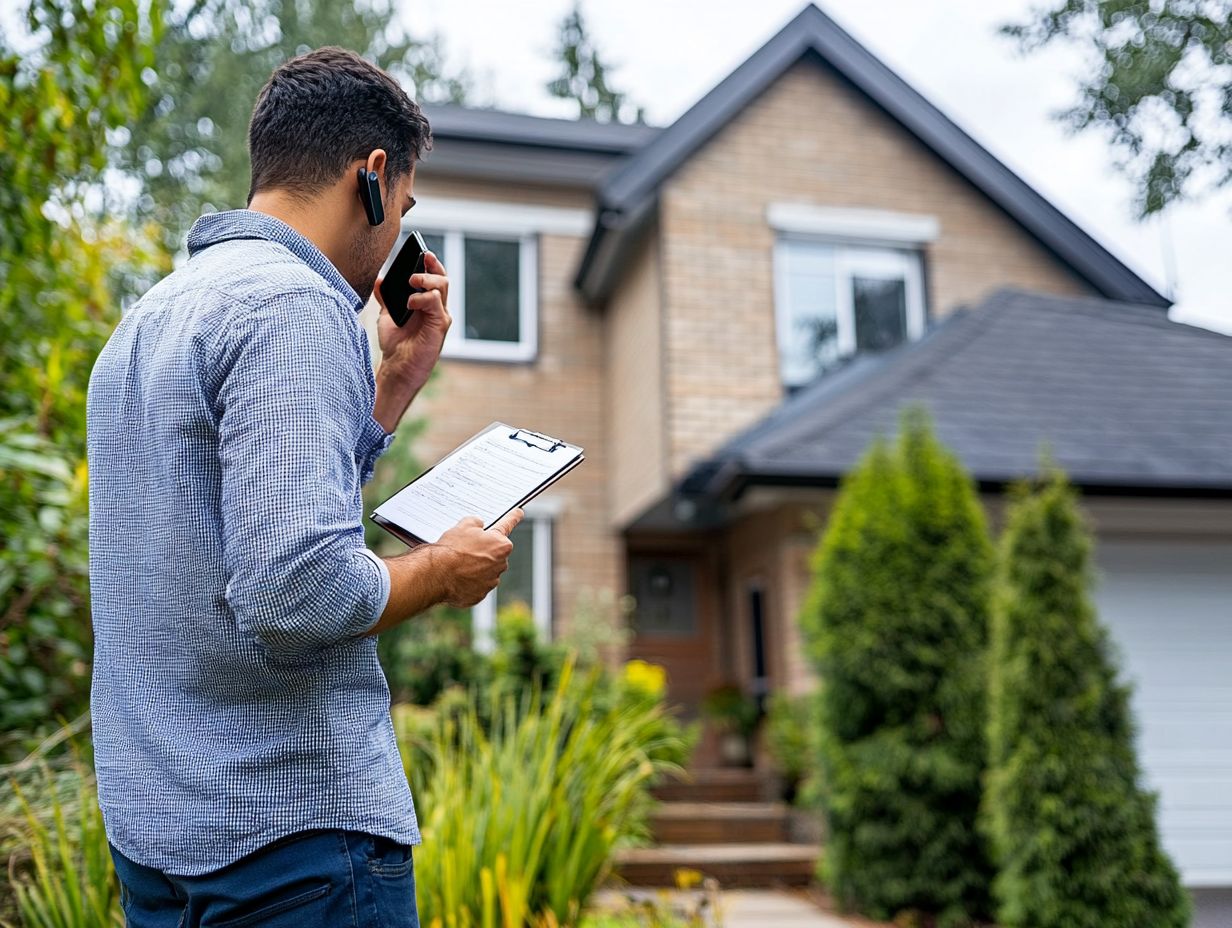
If you have questions about your home inspection report, start by contacting your home inspector. They can clarify any information and provide further explanation if needed.
How long should I wait before following up with my home inspector?
It’s recommended to wait at least 24 hours after receiving your home inspection report before following up. This allows the inspector time to review the report and gather any additional information if necessary. To further enhance your understanding, consider learning how to make the most of your home inspector’s expertise.
Can I request a re-inspection from my home inspector?
Yes, you can request a re-inspection from your home inspector if you have concerns about the initial inspection. However, keep in mind that this may incur an additional fee.
What should I do if I find new issues with my home after the inspection?
If you discover new issues with your home after the inspection, contact your home inspector. They can advise you on the best course of action and whether these issues were present during the initial inspection. For more insights, consider reading about how to get the most out of your home inspection.
Is it appropriate to ask for repairs to be done by the home inspector?
No, it is not appropriate to ask your home inspector to make repairs. Their role is to provide an unbiased evaluation of the home’s condition. If repairs are needed, it’s best to hire a qualified professional for the job.
Can I negotiate the price of the home based on the home inspection report?
Yes, you can use the information from your home inspection report to negotiate the price of the home. Approach this carefully and consult with your real estate agent for guidance.



